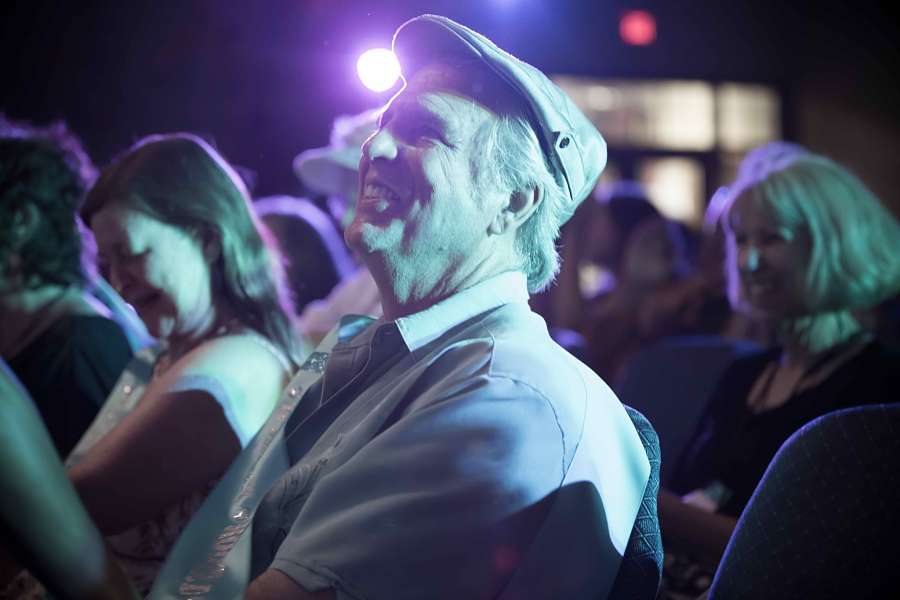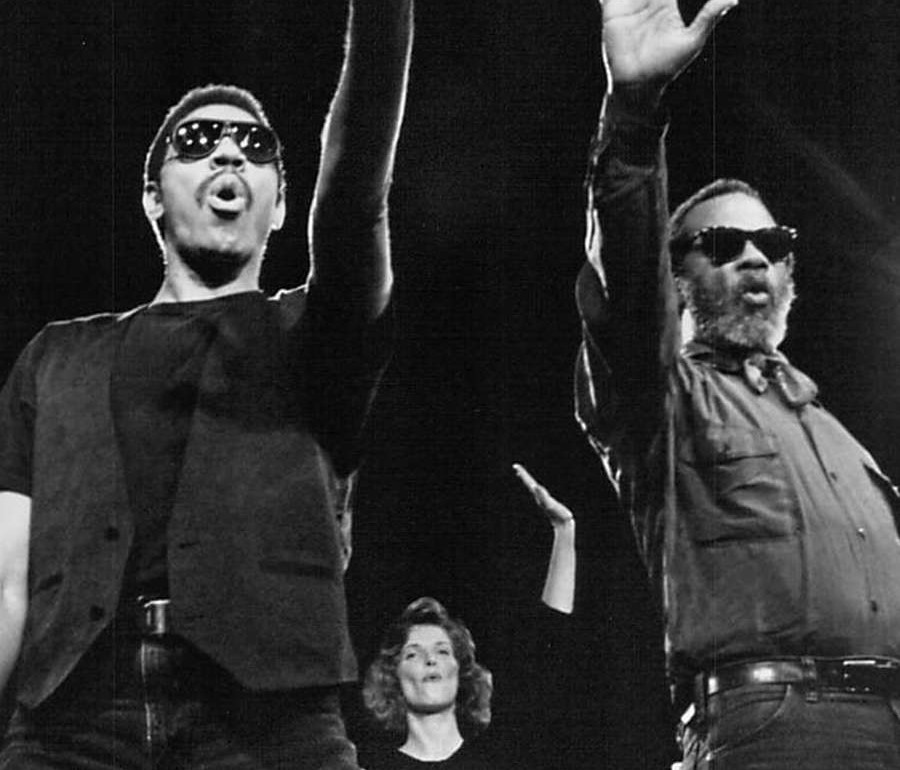Founded on a Tennessee mountaintop in 1976, with the winds of the Civil Rights and anti-war movements still swirling around, Alternate ROOTS set out to test several propositions: What if, instead of beating a path to the bright lights and big cities, we located the inspiration for our playmaking in our home communities? Could such local plays touch audiences anywhere?
Each of the following snippets from early plays by three of ROOTS’s founding companies and artists draws on rural Southern traditions of storytelling, oral histories, and church. The fluency of the actors rendering their respective local dialects delighted audiences; and when those dialects were juxtaposed, as they sometimes were at ROOTS festivals, the delight was multiplied.
Here’s Ma in Ron Short’s musical South of the Mountain (Roadside Theater, 1982):
Joining the church ain’t never helped nobody. You’re just exactly what you are when you come out of there as you are when you went in. Ever’ tub has to stand on its own end. …Some people believe you can’t go to heaven less you are baptized, and some believe it don’t make no difference. Most people believe what they want to believe, and the majority of ’em believe what suits their case.
And here is Rose in Jo Carson’s Daytrips (Road Company, 1988). Rose is the same generation as Ma but moved, in her youth, to a city 65 miles from where Ma lived in the Appalachian Mountains. Short and Carson lived just that distance apart.
ROSE. Turn around, Helen, we’ve gone too far.
REE. This is Olivia, Mother, Helen is dead.
ROSE. Well, she better turn the car around.
PAT. A mile or so back up the road where the map suggested, I turned off 11-W.
ROSE. This ain’t it, ain’t no road like this to Kyles Ford.
PAT. Just be patient.
ROSE. I know where I come from.
REE. Maybe we should go back home.
NARRATOR. We came to a crossroads with an arrow that pointed across the mountain to Kyles Ford . . .
ROSE. You’re just lucky. They done cut another road. Even a blind hog gets an acorn once in awhile.
Here, lastly, is Junebug Jabbo Jones in John O’Neal’s Don’t Start Me to Talking or I’ll Tell You Everything I Know (Free Southern Theater, 1982):
The very first Junebug started life as a Negro slave. From the time that he was big enough to see straight, his Maw took one look at him and said, “Lawd, have mercy, this here’s going to be one of them bad boogers!” That booger was so bad as a child he would not take funk from a skunk. Right away his Maw seen wasn’t half a chance for that boy to make a full grown man ‘fore the white folk would kill him.
Each of these homegrown plays—one from Dickenson County, Va.,the second from Johnson City, Tenn., and the third from Pike County, Miss.—traveled to Los Angeles and New York City, and, in the case of Don’t Start Me to Talking and South of the Mountain (both outfitted for touring) to hundreds of communities in between.
To mark the new millennium, American Theatre editor Jim O’Quinn asked me, in late 1999, to prognosticate. I began by observing that the large corporations that increasingly dominated our economy valued efficiency over participation, mobility over attachment to place, and short-term gain over sustainability—and that nonprofit arts organizations generally subscribed to these same values. I went on to argue that the Internet grid’s relentless glut of information might increase demand for two of theatre’s best qualities: its ability to create live community, and its power to render information into meaning.

Seventeen years later, at ROOTS’s 40th-anniversary celebration, I found myself watching the paths young theatre artists were taking. Do landscapes still inspire them? Do their productions show the drama of local life struggling to renew itself?
In many instances, the answer was yes.
Dudley Cocke, a former TCG board member, is the artistic director of Roadside Theater, the Appalachian company that is a part of Appalshop in Whitesburg, Ky.


